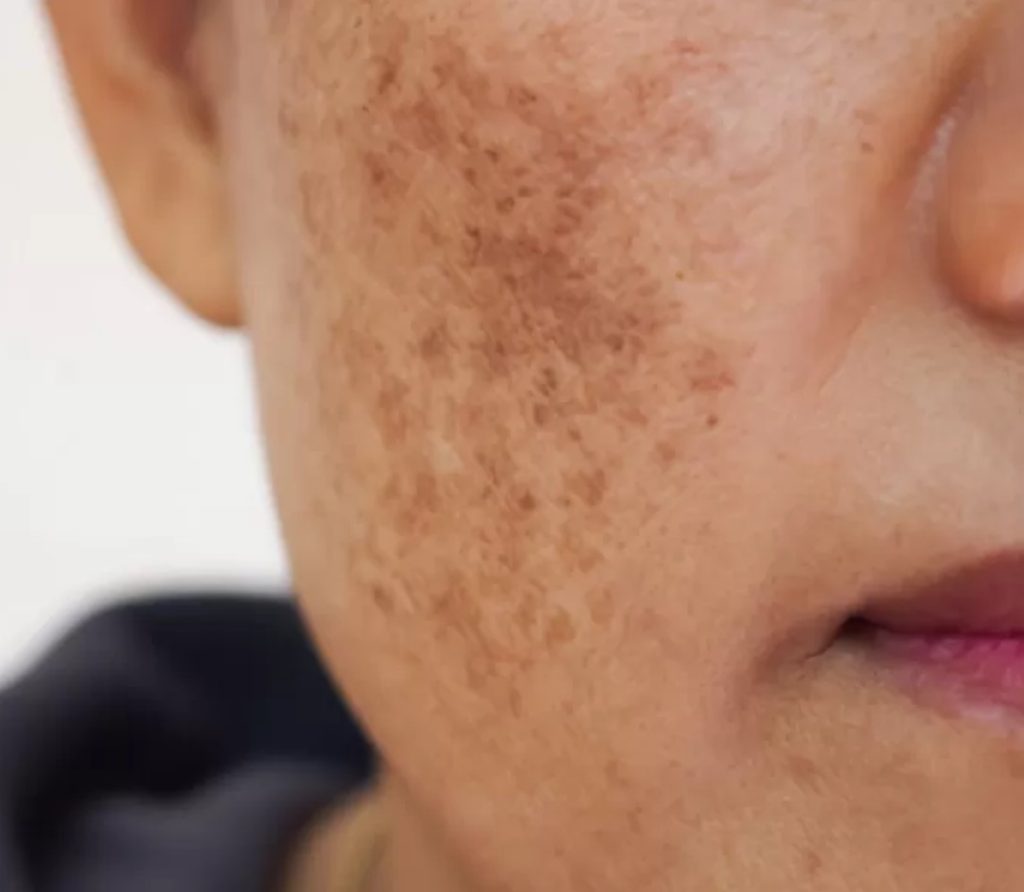Pigmented Lesions
Pigmented lesions are areas of the skin that have an abnormal or irregular coloration due to an excess of melanin, the pigment responsible for skin color. These lesions can vary in size, shape, and color and may be caused by various factors.

At Orchid Clinic, we provide comprehensive information on pigmented lesions, their causes, symptoms, and how laser treatments can effectively address them.
Causes of Pigmented Lesions:
- Sun Exposure: Prolonged exposure to UV radiation from the sun can lead to the development of pigmented lesions, such as sunspots or age spots.
- Aging: As the skin ages, it may develop areas of hyperpigmentation, leading to the formation of pigmented lesions.
- Hormonal Changes: Pregnancy, birth control pills, and hormonal fluctuations can trigger the development of melasma, a type of pigmented lesion.
- Genetics: Some individuals are genetically predisposed to pigmented lesions.
- Skin Injuries: Scars and injuries can sometimes lead to post-inflammatory hyperpigmentation, causing pigmented lesions.
Symptoms of Pigmented Lesions:
- Discoloration: Pigmented lesions appear as darker or lighter spots on the skin, which may contrast with the surrounding skin.
- Varied Appearance: These lesions can take on different forms, including freckles, sunspots, melasma patches, or birthmarks.
Treatment for the skin lesions
Orchid Clinic offers advanced laser treatments to address pigmented lesions, providing safe and effective solutions:
- Laser Pigment Removal: Laser technology is helpful to lighten or remove the lesions. It uses laser technology to target and break down excess melanin in pigmented lesions.
- Post-Treatment Care: Our clinic offers customizing treatment plans and guidance on during and post-treatment care to ensure optimal results and a smooth recovery.
By availing the laser treatment you can achieve clearer, more even-toned skin and improved skin confidence. Contact us today to schedule a consultation and take the first step toward addressing your pigmented lesion concerns.
Can pigmented lesions be a sign of a serious skin condition?
In most cases, pigmented lesions are benign and not indicative of a serious condition. However, it's essential to have any new or changing pigmented lesion evaluated by a doctor to rule out any underlying concerns.
How does laser treatment work for pigmented lesion removal?
Laser treatment targets the excess melanin in pigmented lesions. The laser energy is absorbed by the melanin, causing it to break down and gradually fade or disappear.
Is laser treatment for pigmented lesions painful?
The level of discomfort varies from person to person and depends on the size and location of the lesion. Many individuals describe the sensation as similar to a rubber band snapping against the skin. Topical anesthetics or cooling devices can help minimize discomfort.
How many laser sessions are typically needed to remove pigmented lesions?
The number of sessions required depends on factors like the type of lesion, its size, and its response to treatment. Typically, multiple sessions spaced several weeks apart are needed for optimal results.
Are there any side effects or risks associated with laser treatment for pigmented lesions?
Laser treatment is generally safe, but some temporary side effects may occur, including redness, swelling, or darkening of the lesion. Serious risks are rare but can include scarring or changes in skin pigmentation
Can laser treatment be used for all types of pigmented lesions?
Laser treatment is effective for many types of pigmented lesions, including sunspots, age spots, freckles, and certain birthmarks. Consultation with a professional will determine the suitability of treatment for specific lesions.
How long is the recovery time after laser treatment for pigmented lesions?
Recovery time is minimal. Some redness and mild discomfort may occur but usually subside within a few days. Sun protection and post-treatment care are essential during the healing process.
Can pigmented lesions reappear after laser treatment?
While laser treatment can effectively remove pigmented lesions, new lesions may develop over time due to factors like sun exposure and aging. Proper sun protection can help prevent their recurrence.
How do I schedule a consultation for pigmented lesion treatment at Orchid Clinic?
To schedule a consultation or inquire about pigmented lesion treatment, you can contact our clinic through phone, email, or by using the provided contact form on our website.
